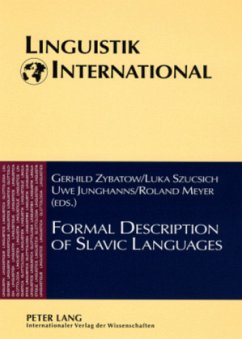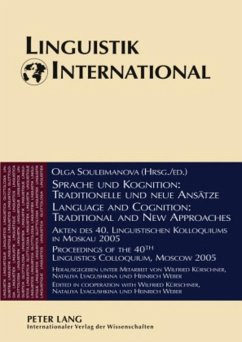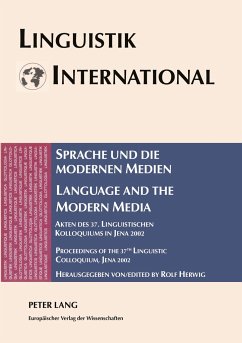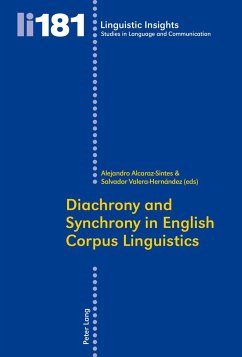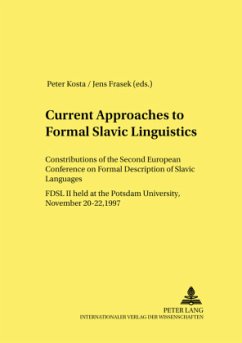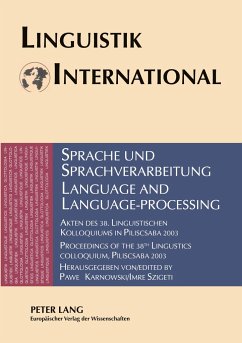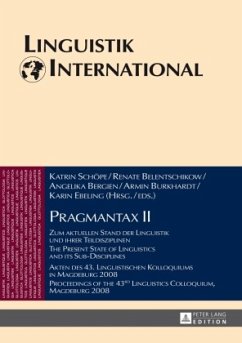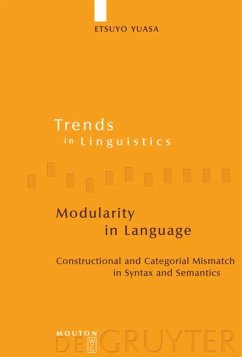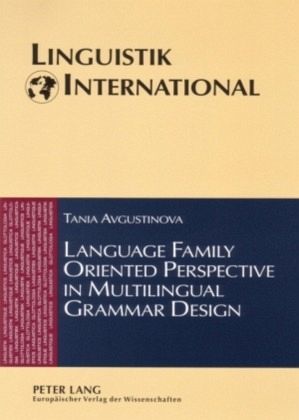
Language Family Oriented Perspective in Multilingual Grammar Design
Versandkostenfrei!
Versandfertig in 6-10 Tagen
77,40 €
inkl. MwSt.

PAYBACK Punkte
0 °P sammeln!
Grammatical relatedness of Slavic languages could effectively be exploited in multilingual grammar engineering in order to achieve theoretically sound modularity that would also incorporate important insights from Slavic linguistics. In line with increasing interest in finegrained modular linguistic representations, this book investigates the plausibility of designing linguistically motivated shared grammatical resources for an interesting set of related languages in a grammar formalism that appears to be suited for this endeavour. Grammar is viewed as a repository of knowledge encoded in rich...
Grammatical relatedness of Slavic languages could effectively be exploited in multilingual grammar engineering in order to achieve theoretically sound modularity that would also incorporate important insights from Slavic linguistics. In line with increasing interest in finegrained modular linguistic representations, this book investigates the plausibility of designing linguistically motivated shared grammatical resources for an interesting set of related languages in a grammar formalism that appears to be suited for this endeavour. Grammar is viewed as a repository of knowledge encoded in rich ontologies. Selected topics of Slavic morphosyntax illustrate the range of shared grammatical knowledge to be modelled.





